LSTS Books of the year
The Research Group on Law, Science, Technology and Society (LSTS) of the Vrije Universiteit Brussel (VUB) has assembled its list of most influential readings of 2017. For the second time already, members and affiliated researchers have reflected and share their views on their reading experiences and sources of inspiration, in what is already starting to look like a solid end-of-the-year tradition.
Here go all nominations, in strict alphabetical order.
See the following links for the editions of 2016.
ABU HAMDAN, LAWRENCE, [INAUDIBLE] A POLITICS OF LISTENING IN 4 ACTS (BERLIN: STERNBERG PRESS, 2016)
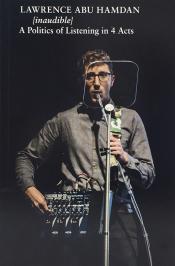
I spotted this book on the shelves of the MACBA’s shop, in Barcelona, after visiting the exhibition Forensic Architecture: Towards an Investigative Aesthetics. It is indeed about critical forensics, and more concretely about “the politics of juridical hearing in situations of legal identity profiling and voice authentication”, as Emily Apter explains in her very useful foreword, linking conceptually Lawrence Abu Hamdan to Jacques Derrida via the shibboleth. It is also, more widely, about what Abu Hamdan defines as a politics of listening: a politics that would move beyond the notions of ‘speaking out’ or ‘giving voice’ towards a critical inquiry about what is recognised as speech.
Personally, I found particularly thought-provoking his account of the evolution of the screening of asylum seekers’ speech through Language Analysis for the Determination of Origin techniques; a terrifying instance of the perversion(s) of (data-)science and technology for the purposes of exclusion – or, in a more derridian fashion, the techno-violence of other people’s monolingualism.
Gloria González Fuster
ADICHIE, CHIMAMANDA NGOZI, AMERICANAH (NEW YORK: ALFRED A. KNOPF, 2013)
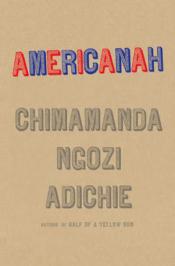
Very nice and subtle love story between the strong-willed Ifemelu and her friend Obinze, a Nigerian couple, over a lifetime, with long separations, during which she lives in the US and he stays in Great Britain. Being black is not the same in Lagos, London and the US, and blacks are of all colours. The crux of the book lies in the encounters, travels and the stories, often about race, identity, gender, africanity, American Africans, African Americans, snobbism, nouveaux riches, deportation, military regimes in Lagos, Nigeria, etc. Different storylines, full of stories are crossing each other. This is a great, tender, and witty, but always sincere and emphatic novel, which is full of warm smiles and sparkling intelligence. Especially in Ifemelu’s (feminist) blog posts.
This novel appeals irresistibly to very plain feelings of warm happiness, a bit like Jim Jarmush’s movies (especially Smokewith Harvey Keitel) or, yes, another young African female writer, Taiye Selasi (Ghana must go!, 2014).
Serge Gutwirth
ALBERTINE, VIV, CLOTHES, CLOTHES, CLOTHES. MUSIC, MUSIC, MUSIC. BOYS, BOYS, BOYS (LONDON: FABER & FABER, 2014)
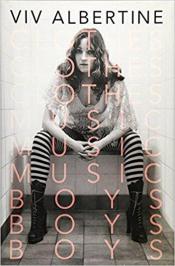
I made the algorithm go wild this year as I clicked OK to everything it said after buying Just Kids by Patti Smith, which, by the way, is highly recommended if you want to know more about one of the greatest record covers of all times (yes, the 1975 Horses cover). Patti Smith’s book was fine, but then Girl in a Band, by Sonic Youth’s Kim Gordon – possibly the most deleuzian indie rock bassists ever – was even better. By the time I got to the also very interesting Hunger Makes Me a Modern Girl by Sleater-Kinney’s Carrie Brownstein, I already knew I would additionally read Clothes, Clothes, Clothes. Music, Music, Music. Boys, Boys, Boys, by the Slits’ Viv Albertine, which turned out to be excellent, and then, suddenly, I understood what the algorithm was actually trying to say: there is, in fact, no cover like the Horses cover.
I am almost certain this has some connection with Vilém Flusser’s dream of images acting inside the apparatus dialogically against it; in any case, it surely has a link with law and science: commenting her book, Albertine stated that nowadays instead of becoming a musician she would find more exciting the prospect of studying for a science degree, or becoming a human rights lawyer. Looking forward her future book about it.
Gloria González Fuster
AZUMA, HIROKI, GENERAL WILL 2.0: ROUSSEAU, FREUD, GOOGLE (NEW YORK: VERTICAL INC., 2014)
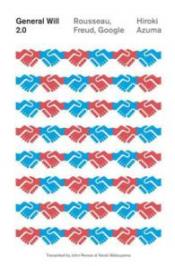
According to Azuma, democracy should be built on deliberative, communicative and practical government of the society. The Japanese philosopher’s dream about the society of the future is built on information: by harnessing the massive database of information on e.g. Twitter, Facebook and other online media, it would be possible to visualise the aggregate the desires of people. He elaborates on the concept of ‘general will’, coined by Rousseau in 18th century, and refers to it as the appropriate interpretation of information. Reshaped by information technology and the ability of visualisation, he coins this societal consciousness as ‘general will 2.0’.
Although his utopia ignores apparent elements of online media, such as emotions, virulence or xenophobia, this thought-provoking work draws-up an interesting information technology-based, bottom-up approach to governance.
István Böröcz
BLISSETT, LUTHER, Q (TORINO: EINAUDI, 1999; ENGLISH TRANSLATION BY SHAUN WHITESIDE, LONDON: HEINEMANN, 2003)
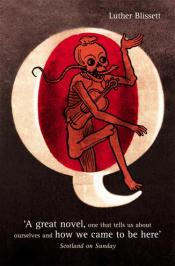
Four loose leftist Italian dogs hiding behind a pseudonym (now they go as ‘Wu Ming’) put together this extraordinary epic novel of religious wars, papal intrigues, bloody battles, true friendship, yearn for liberty and insatiable wrath. The book recreates sixteenth century in Europe and the confrontation between the Catholic, Lutheran and Anabaptist movements. The story is based on real events and persons, the major representatives of the Reformation, the Protestant movements and the Catholic Church, supported by a solidi historical research and intertwined with invented situations. From Württemberg, to Munster, to Antwerp, to London, to Geneva, Venice, Ferrara, Rome, in Q there are characters like Luther, Melanchthon, Thomas Muentzer, Jan of Leyda, Anton Fugger, the Sephardic family of the Mendes and powerful prelates such as the sinister Cardinal Carafa, head of the Inquisition and future pope with the name of Paul IV. The battle ensues between the hero Gert De Puits and the obscure emissary of the Cardinal Cafara, Q.
The book shows, without hiding the excruciating regret, how close the Catholics and the Protestants, the north and the South, came to a compromise – the possibility of which was destroyed by the counter reform (Trento, 1563) – that would have changed the course of European history.
Eugenio Mantovani
BOYLE, T.C., THE TERRANAUTS (LONDON: BLOOMSBURY, 2016)
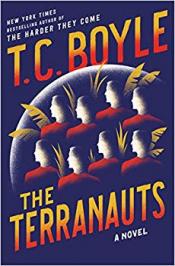
How to prepare humans to survive on Mars, or on an ark to save humanity? Indeed, through a scientific experiment! Inspired by a real experiment in Arizona (Biosphere 2), T.C. Boyle draws the setting of his novel: under a big, hermetically closed glass structure, containing different artificially created ecologies – a “tropical forest”, a “sea”, a “savannah” – eight humans are supposed to survive for two years on their own means and productions. The plain rule is: “nothing in, nothing out”. Even with intensive support of a scientific crew outside, a very long preparation, intense monitoring and diversely skilled protagonists inside, the experiment is barely liveable. Conflicts, tensions, envies, competition and many complications (one of the women becomes pregnant, has and keeps the baby “inside”): the ‘light’ and adventurous side of the story steadily shifts towards a heavy claustrophobic sphere. The book also provocatively stages and depicts science in action, with all its impurities, interventions, manipulations, redress operations and flexibilities. A group of humans in isolated conditions is the exact opposite of a “recalcitrant” and “indifferent” object of science (marbles, pendulums, atoms, …) that makes the production of proofs possible: every intervention of the scientists creates a new situation, and changes the experimental objects. They do not describe, but intervene, cannot but intervene.
In a certain sense this book evokes the infamous Zimbardo and Milgram experiments. According to Jean Paul Van Bendegem, our great colleague in philosophy of sciences, this book should be compulsory literature for all students of ‘sciences of sciences’ and STS. He is right, and actually, this applies as well to Boyle’s earlier novel The Inner Circle, that was inspired by the research for the Kinsey reports on sexuality in the early fifties of the last century.
Serge Gutwirth
BUTLER, OCTAVIA, THE PARABLE OF THE SOWER (NEW YORK: FOUR WALLS EIGHT WINDOWS, 1994) AND THE PARABLE OF THE TALENTS (NEW YORK: SEVEN STORIES PRESS, 1998)
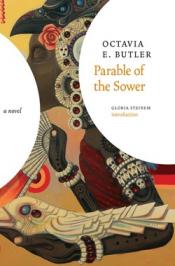
California, somewhere in the 2025s, is devastated and disintegrated by climate change. All institutions seem to have collapsed, the American President promises to “make America great again”, insecurity and violence reign, except where corporate power and money succeed in keeping them out. Lauren Olamina lives with her family in one of the safe and gated neighbourhoods remaining on the outskirts of Los Angeles, but a violent attack, with looting and murder, followed by a destructive fire, leaves her on the road, amidst a war of life and death of all against all. But Olamina, under the motto “God is Change”, develops a non-predatory mode of survival, based on the sharing of goods and knowledges, on mutualism, slow building of trust and interdependence (who can you trust?): “commoning” as a sustainable way to survive, learn and live in the ruins.
The two parables are extremely hard, direct, even rude, and unforgiving, but that makes the tiny and fragile roots of hope that Octavia Butler lets grow in the rotten compost of capitalism all the more important. Undoubtedly amongst the most gripping novels I have read.
Serge Gutwirth
CHUN, WENDY HUI KYONG, UPDATING TO REMAIN THE SAME: HABITUAL NEW MEDIA (CAMBRIDGE, MA: MIT PRESS, 2016)
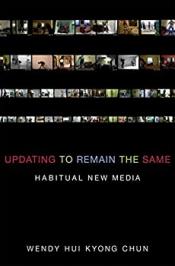
By taking ‘habit’ at its centre, this book offers a fresh analysis into ‘new media’. In this book, Wendy Chun is not discussing the next big thing or disruptive new technologies. Chun argues that our technologies matter most notwhen they are new but when they become habitual – when they have moved to the realm of the everyday life. Chun points out to the gap between our perception of communications technologies and their habitual operations. And she asks: why do we view our networks as ‘personal’ when they are so promiscuous?
The book also raises important questions about privacy. Chun contends that we need to embrace the fundamentally non-personal nature of our networked communications. ‘Promiscuous’ networks operate by making users vulnerable. Thus, Chun suggests that rather than pushing for privacy that is no privacy, we need to demand public rights – the right to be vulnerable and not attacked. An interesting read about network operations and cultures and how we engage with technologies.
Imge Ozcan
CORCORAN, MICHAEL, HE IS MY STORY: THE SANCTIFIED SOUL OF ARIZONA DRANES (SAN FRANCISCO: TOMPKINS SQUARE 2012)

I have tried to get the rules of this end-of-the-year LSTS list changed, so we could also highlight not only the most influential books, but also the most influential records of the year. Waiting for that to happen, I take the liberty to select a book that comes with a CD, with some great 1920s performances by Arizona Dranes, a blind gospel singer and pianist about whom very little is known – which is partly why the book is so short. The volume does, however, interestingly explain Dranes was into Pentecostalism, and a firm believer of the doctrine according to which speaking in tongues is an act of grace, as opposed to a deception of the devil, a conviction which can only be applauded by anybody with some sympathy for translation.
Talking about applauding, this year I very much enjoyed the following records, in no particular order: Björk’s Utopia (powerful lyrics to be read there, as usual), Laurel Halo’s Dust (a very anti-utopian title, but many blissful songs), Kara-Lis Coverdale’s Grafts (floating profound computer music), Ekin Fil’s Ghosts Inside (internal shoegazing from Turkey), Kane Strand’s Two Hearts and No Brain (great fun), and Piano Magic’s farewell album, Closure (which, as they convincingly illustrate, is what you never get).
Gloria González Fuster
DAWSON, MARK, THE GOVERNANCE OF EU FUNDAMENTAL RIGHTS (CAMBRIDGE: CAMBRIDGE UNIVERSITY PRESS, 2017)

The author gives us a fresh look on European Union’s fundamental rights by viewing them as a governance issue, and evaluating the mechanisms through which EU law and its institutions protect and enforce them. Besides discussing the topic in general, he also analyses it through the lens of various specific examples, including the data protection authorities and the Article 29 Working Party.
Perhaps the data protection discussion is not quite as nuanced as I would have wished, but this is still an important book that anyone interested in fundamental rights law of the European Union should read.
Christopher Kuner
DE BEAUVOIR, SIMONE, UNE MORT TRÈS DOUCE (PARIS: GALLIMARD, 1964)
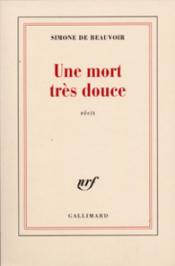
In the days after my mother died I read this brief memoir. So much recognition and so much alienation. De Beauvoir supported her mother’s dignified attempt to simply deny that she was dying, endorsing the self-deceit as an act of mercy.
Mireille Hildebrandt
DE BOTTON, ALAIN AND JOHN ARMSTRONG, ART AS THERAPY (LONDON: PHAIDON PRESS, 2013)

In this popular culture book, De Botton and Armstrong follow the example of other authors who have approached art as means of therapy, such as in Art as Therapy, edited by Tessa Dalley (1984). Instead of therapy in its clinical meaning, De Botton and Armstrong take a lighter, still interesting angle, in considering the beneficial/therapeutic impact of art in ‘our’ daily lives.
The authors identify therapeutic functions of art, which respond to what they identify as ‘our’ needs. Those functions are remembering, providing hope, allowing us to inhabit and metabolise sorrow, rebalancing, self-understanding, grow knowledge over the unfamiliar, and appreciating. This book is an easy read, with practical examples of artworks provided to illustrate the authors’ arguments.
Irene Kamara
ECKERMANN, JOHANN PETER, GESPRÄCHE MIT GOETHE IN DEN LETZTEN JAHREN SEINES LEBENS (LEIPZIG: RECLAMS UNIVERSAL-BIBLIOTHEK, 1836)

ckermann takes us back to 18thcentury Weimar, which seems to be a latter-day Athens filled with civilized conversation and intellectual explorations among friends. The book brings the aged Goethe to life as a charming and witty conversation partner with fascinating things to say on almost any topic, making this an ideal volume to dip into from time to time for intellectual refreshment.
It does not surprise me that Nietzsche called this “the best German book there is”.
Christopher Kuner
ENDŌ, SHŪSAKU, SILENCE (LONDON: PETER OWEN, 1969)
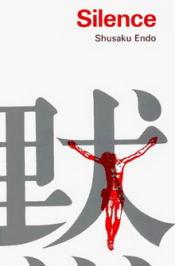
The main topic of this novel is faith. However, this book is also about the world where individuals need to hide their beliefs as the religious police can hunt them, torture and sentence to death. In his novel, Endō describes persecution and cruelties that were happening to the Japanese Christians in 17th century. To everyone’s surprise, the communities of Kakure Kirishitan (hidden Christians) managed to remain under-covered for the 200 years and revealed themselves only after 1873, i.e. the year when religious freedom was re-established in Japan.
Such secrecy, involving whole villages and lasting for several generations, was very difficult to achieve. Would it be possible to keep such secrecy in the contemporary society, running on information and surveillance?
Michał Czerniawski
FALOUDI, SUSAN, IN THE DARKROOM (NEW YORK: METROPOLITAN BOOKS, 2016)
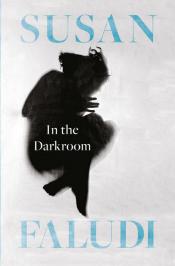
In this autobiography/biography, Susan Faloudi’s father, a Hungarian Jewish photo editor who emigrated to the United States after the World War II, decides to become a woman and undergoes the necessary surgeries. With this book Faloudi tries to do justice to this decision, but also to her relationship with her father in general. What makes this such a fascinating read is the history of the father, who experienced everything from the Nazi occupation of Budapest to the rise of the Fidesz party. This huge variety of themes inspires Faloudi to reflect deeply on identity, gender roles, but also religion, all in the context of her father’s and increasingly her own life.
What I especially liked is that most of her reflection end in uncertainty and she never forces her father into any of the roles discussed, leaving space for the different personalities her father can be (though readers who like more definite answers might be annoyed). The detailed portrayal of Hungary then and now is also very fascinating and insightful. From a privacy perspective, this book really shows why it is necessary to give people the space to be many things, to many people, in many different settings, simultaneously.
Laura Drechsler
FUKUYAMA, FRANCIS, THE END OF HISTORY AND THE LAST MAN (NEW YORK: FREE PRESS, 2006; ORIGINALLY 1992)
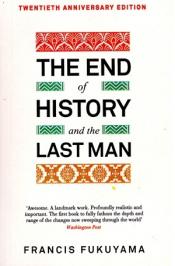
As a continuation of his controversial article The End of History? (1989), Fukuyama answered to the critiques and expanded his thesis in the The End of History and the Last Man, arguing that with the failure of communism and the advent of Western liberal democracy and capitalism, humanity has reached the end of its sociocultural evolution and achieved the most optimal state of human government. Although the past 30 years proved that Fukuyama was somewhat optimistic, his work remains a valuable analysis of the past and allows the comparison of contemporary, Western liberal democracies and his ideal form of social structure.
From the point of view of the individuals living in the achieved, ideal world, his analysis emerges several questions, such as ‘do I want to live in a world I am fighting for?’ or ‘does it worth to abandon other values for the sake of liberal democracy?’.
István Böröcz
FUNG, ARCHON, MARY GRAHAM AND DAVID WEIL, FULL DISCLOSURE: THE PERILS AND PROMISE OF TRANSPARENCY (NEW YORK: CAMBRIDGE UNIVERSITY PRESS, 2007)
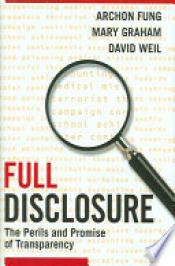
Ten years after its publication, Full Disclosure: The Perils and Promise of Transparency offers numerous insights about three generations of transparency policies that were developed in the US, with an exception of the international corporate finance reporting. The book presents a comparative study of eighteen well-known policies, which show that in spite of newly generated information about various ‘phenomena’, this information seldom improves business practices; it is incomplete, irrelevant or hard to obtain for ordinary citizens. The book is well researched and calls for caution: while on the surface many transparency policies are deemed to be successful in attaining their goals, more often than not, such policies do not bring any tangible results.
These observations are particularly interesting in the context of the Article 29 Working Party Guidelines on transparency under the General Data Protection Regulation, which claim that transparency is an overarching data protection obligation. It remains to be seen if reinforced and newly introduced transparency requirements in the Regulation are going to strengthen the fundamental right to the protection of personal data.
Lina Jasmontaite
GEUSS, RAYMOND, PUBLIC GOODS, PRIVATE GOODS (PRINCETON: PRINCETON UNIVERSITY PRESS, 2001)

I found this a gem of a book. It discusses the contours and problems with the distinction of private and public goods in four acts, touching on Diogenes the Cynic, Julius Caesar, St. Augustine and liberalism.
Geuss concludes that no single useful distinction can be made and recommends that we develop a more substantive view (human goods) of what is at stake when a distinction between the private and public is made in theory as well as in practice.
Joris van Hoboken
GONCHAROV, IVAN, OBLOMOV (LONDON: PENGUIN CLASSICS, 2005)
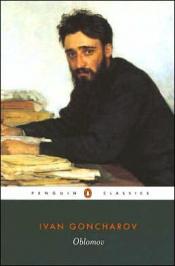
It is a pity that Goncharov’s classic novel is so little known outside Russia, where it has had a profound effect on Russian culture and language. The title character, a young nobleman who cannot bring himself to make decisions about anything, has become the byword for idleness, but a description of the plot cannot do justice to the author’s exquisite craft or his insight into the human condition.
Rather than attempt to describe this book, the best thing I can do is to urge you to read it!
Christopher Kuner
HASSELBALCH, GRY AND PERNILLE TRANBERG, DATA ETHICS – THE NEW COMPETITIVE ADVANTAGE (COPENHAGEN: PUBLISHARE, 2016)
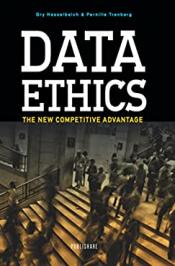
As a researcher puzzled by a buzzword ‘data ethics’, I was eager to read Data Ethics – The New Competitive Advantage. Hoping to resolve mysteries about the term ‘data ethics’, I was turning pages of the book. The main argument is that ‘data ethics’, composed of principles stemming from the EU data protection framework and technical measures, can provide a competitive advantage for companies offering digital products. I read the book till the last page despite encountering inconsistencies in the authors’ argumentation. To my own surprise, I found that bad books can teach and provide with one valuable insights as much as good books.
Even though the book did not offer any meaningful explanation of what is ‘data ethics’, it inspired me to further advance debates on the topic with my colleagues and write a critical review, which will be published in International Data Privacy Law.
Lina Jasmontaite
ISHIGURO, KAZUO, THE BURIED GIANT (LONDON: FABER & FABER, 2015)
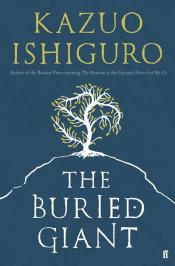
A fantasy novel by the Nobel-prize winning British writer, first published in 2015. Inspired by 14th century Arthurian chivalric romance Sir Gawain and the Green Knight, he poses the issue of collective memory and the way societies cope with traumatic events by forgetting. The historic settings are imaginary, in order to avoid too realistic and literary interpretations. We follow the adventures of an old couple as they depart from a troubled land of mist and rain, where everyone seems to have lost his memory, in the hope of finding a son they have not seen in years. As they move forward, their path ends up being a struggle about lost memories, love, revenge and how to find their true selves.
A modern fairy tale that travels our thoughts and imagination into discovering what lies behind first impressions.
Ioulia Konstantinou
KAFKA, FRANZ, THE CASTLE (TRANSLATED FROM THE GERMAN BY JON CALAME, SETH ROGOFF AND ANTHONY NORTHEY; PRAHA: VITALIS, 2014)
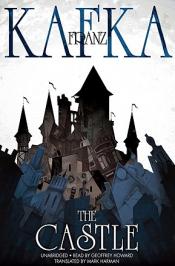
FThis year I read the classic fictional novel of Kafka, his last work, which was left unfinished due to the author’s death. The book tells the story of a land surveyor (‘K.’), who is assigned to inspect the Castle, and always finds hurdles in his effort to reach the Castle and carry out his assignment. K. struggles with the officials and authorities, but also local villagers who accept unquestioned the decisions of the authorities.
The story and the struggles of the main character K. are always relevant and thought-provoking about the way societies perceive and accept ‘authority’, and what consequences citizens and those affected by unjustified decisions might be encountering when confronted with such situations.
Irene Kamara
KANG, HAN, THE VEGETARIAN (TRANSLATION FROM THE KOREAN BY DEBORAH SMITH, LONDON: PORTOBELLO BOOK, 2015)
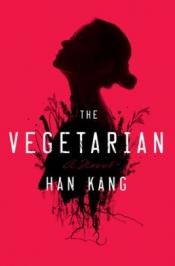
One of the most horrifying narratives I read – had to put it aside several times. Do not read it, as it will spoil your day (or more). Spoiler: the unsentimental novel contains an abysmal and merciless description of how a father’s cruelty against an animal scars his young daughter, resulting in a life of extreme mental pain and life-saving indifference. The unspeakable awareness of what one person can actually do against another reminded me of Julian Barnes’ The Noise of Time (2016) on Chostakovitch’ life under Stalin’s dictatorship, and of Das Leben der Anderen, the 2006 movie.
All about authoritarianism.
Mireille Hildebrandt
KINGSLEY, PATRICK, THE NEW ODYSSEY. THE STORY OF EUROPE’S REFUGEE CRISIS (LONDON: GUARDIAN BOOKS, 2016)
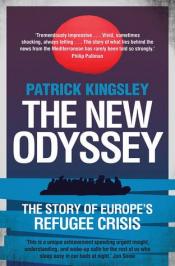
Kingsley, at the time The Guardian’s migration correspondent, travelled around the Mediterranean coast, roughly in 2015 – at the height of the so-called ‘migration crisis’, to learn the stories not only of those who have been seeking refuge in Europe, but also of those who have smuggled asylum seekers, aided them (or not) or otherwise encountered them en route. His reportage is a powerful, first-hand account of people’s motivations to flee their “collapsed homelands” (as he puts it) and, about some other people, of their reasons to smuggle them, help or refuse such help. We all know stories of migrants from the media, but Kingsley speaks to the reader’s imagination. It is also a detailed account of the way in which such journeys have been organised in practice. (I have learnt, for example, about their dependence on social media and – broadly – on new technologies).
Kingsley is also not shy of taking a stand on what he has seen or heard. I used his book as one of my guides while co-editing with my colleagues the upcoming volume on Irregular Migration as a Challenge for Democracy (2018), and co-authoring its introduction.
Dariusz Kloza
LATOUR, BRUNO, OÙ ATTERRIR. COMMENT S’ORIENTER EN POLITIQUE (PARIS: LA DÉCOUVERTE, 2017)
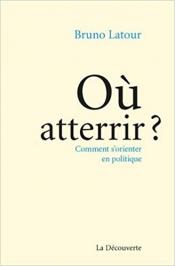
A few years ago, Naomi Klein put her finger right on the spot: climate change, she wrote, “changes everything”. Such stance is also at the core of Bruno Latour’s last book, a powerful essay wherein he undertakes to redraw the current “system of coordinates of political thinking” in the light of the new situation. For Latour, three main contemporary threats are tightly interwoven: the ever more expanding global deregulation, the explosion of inequalities and migrations, and the disruption of the climate (and its denial). Rather than confirming the classical frontlines of the political (such as left vs. right, local vs. global, economy vs. ecology, culture vs. nature), this insight shows the emergence of a new transversal political frontline, namely the clash between those who continue to act as if they do not share the same atmosphere (and its/their common fate), and those who do.
The corporate coup, as exacerbated by Trumpism, expresses the first position: it builds walls to keep out migrants, shamelessly continues to pollute and burn carbons, denying their impact on climate disruption, indeed, making the rich richer, and the poor poorer. As if corporations and their leaders have another world in reserve. The second position belongs to the terrestres, or Earthbound, who start taking care of each other and their common habitat in one reassembled social and ecological combat. A combat for a politics of (mutual) care. Very refreshing and strong stuff.
Serge Gutwirth
LEROY, GILLES, ALABAMA SONG (PARIS: MERCURE DE FRANCE, 2007)
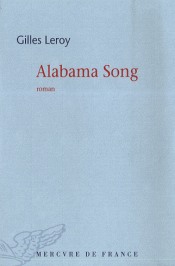
Women found more voice through twittering about and acting on abuse and unacceptable behaviour… It is one of the things to be remembered about 2017. Trained in criminal law, I see some welcome concern for due process in the media prosecutions, but I see not enough questioning of the legal system as a solution and a trigger for behavioural change. In a July interview in De Morgen, a Belgian newspaper, Édouard Louis usefully reminded us about the struggles of French feminist in the sixties and seventies, seeking justice with regard to rape and abuse, but fully distrusting the legal court system. Their solution was to start proceedings and withdraw in time. Keeping control as a ‘victim’ speaks to my intuitions. My other intuition is about women wanting what men have, and, preferably, as soon as possible. I am on the outlook for a more fundamental development of shaping the world more along the lines of values and priorities emanating from women. Fundamentally optimistic about gender conflicts and believing that most of what we want is not too strange to the other, I found pleasure in reading Gilles Leroy’s American novel about Zelda Sayre, better known as Zelda Fitzgerald, the wife of F. Scott Fitzgerald. Leroy mixes facts and fiction and is of course far from being a woman. Hard to say why I like this novel, that is written in the ‘I-form’ with Zelda talking to us. What I do know is that I liked both the novel and the ‘I’ that is speaking.
Ten years ago, most of my law and technology colleagues were flirting with ‘second life’ and the concept of ‘identity’. In those days, millions of Internet users turned to Second Life, ‘a free 3D virtual world where users can create, connect, and chat with others from around the world using voice and text’ and taking up whatever identity including identities of the other sex. Leroy, a French male, in Alabama Song is exploring similar role-changing experiences through his story telling as an American female. Perhaps this Zelda talking to us is no more than a product of a French male’s phantasies. I hope not. I like this Zelda even more than Benoîte Groult’s women in Les vaisseaux du coeur (Salt on our skin, 1990) and other novels. Zelda is the young woman that wants to beat the boys in sport and other domains. She is the young punk that wants to party and loathes housekeeping and other domestic affairs. Parenthood was received with mixed feelings. One child, no more, and a nurse to take care of it. Zelda is the creative person that upsets societal values and re-defines dress and other codes. The importance of her diaries for Scott Fitzgerald’s books is more than inspirational. “Plagiarism begins at home”, she famously observed when her husband published The Beautiful and Damned in 1922. True or not, it is pleasant to see that Zelda has priorities and talents that go beyond being ‘la Belle du Sud’ from Alabama.
As a person without interest in biographies, I found this novel a pleasure and Zelda a welcome model for women seeking voice and, more importantly, to become themselves. I now have a reason to visit Montgomery, Alabama with its Fitzgerald museum. Wikipedia teaches me that this museum is “one of the few places where some of Zelda’s paintings are kept on display”. Another to do is getting my hands on Save Me the Waltz and other writings of this fascinating Zelda Fitzgerald. Something tells me that Leroy, like Scott Fitzgerald before him, is leaning real hard on Zelda’s expressive talents.
Paul De Hert
LEVI, PRIMO, I SOMMERSI E I SALVATI [THE DROWNED AND THE SAVED] (TORINO: EINAUDI, 1986; ENGLISH TRANSLATION BY RAYMOND ROSENTHAL; LONDON: ABACUS 1989)
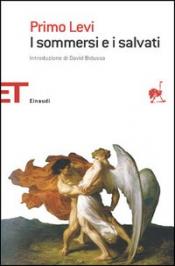
This is the last of the three books Levi wrote about his experience in the Auschwitz Lager, after Se questo é un uomo and La tregua. This book was written forty years after his return from the concentration camp; this detail is important because Levi, in this book, interrogates his memories, the actions, the omissions, the thoughts he had while working in the Lager, and compares his with those of others, simple persons, like Alberto, or intellectuals such as Jean Amery. His characters, real persons in flesh and bones, dead or living, populate a ‘grey area’, described in the second chapter of the book. This is an area in which there are groups of people halfway between the good and the bad.
Levi understands the natural tendency of human beings to classify men in either good or bad: many sports, such as football, are popular precisely because, according to the beholder, one team, my team, is good and the opponent is seen as the enemy. The author states that that in everyday life situations are not that simple and clear cut. What will strike you is that to explain this point, he cites his experience in the Lager.
Eugenio Mantovani
MANTEL, HILARY, WOLF HALL (LONDON: FOURTH ESTATE, 2009)
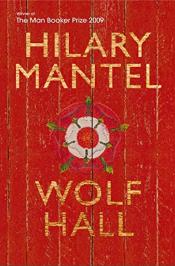
Setting the scenery from 1500 to 1535, Wolf Hall is a fictionalised biography describing the rapid rise to power of Thomas Cromwell in the court of Henry VII through to the death of Sir Thomas More. In 1520s England, if the king dies without a male heir, the country could be destroyed by civil war. Henry VIII wants to annul his marriage of twenty years and marry Anne Boleyn. The pope and most of Europe opposes him. And here steps Thomas Cromwell: a wholly original man, a charmer and a bully, both idealist and opportunist, astute in reading people and implacable in his ambition. But Henry is volatile: one day tender, one day murderous. Cromwell helps him break the opposition, but what will be the price of his triumph?
I could not leave this book down, as it narrates my favourite part of English history, re-told under the perspective of one of its most vicious personalities. In the end, Hilary Mantel humanises a man who seemed a historical monster.
Ioulia Konstantinou
MANTEL, HILARY, BRING UP THE BODIES (LONDON: FOURTH ESTATE, 2012)
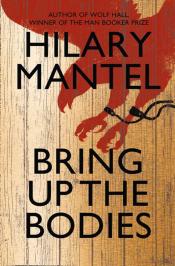
The sequel of the Wolf Hall begins not long after the conclusion of Wolf Hall. Though Henry battled for seven years to marry Anne Boleyn, he is now disenchanted with her. She has failed to give him a son and her sharp intelligence and audacious will alienate his old friends and the noble families of England. When Henry’s first wife Katherine dies in exile from the court, Anne becomes the focus of gossip and malice, extremely exposed to all kind of enemies. Thomas Cromwell is ready to bring her down, upon his master’s commands. A web of conspiracy is constructed to destroy Anne, while Jane Seymour, the new Henry’s lover, patiently waits her turn for the wedding ring. But Anne and her powerful family will not yield without a ferocious struggle. Hilary Mantel’s Bring Up the Bodies follows the dramatic trial of the queen and her suitors for adultery and treason. In order to defeat the Boleyn family, Thomas Cromwell allies with his worst enemies, the papist aristocracy. But the price he is about to pay, is the highest one.
Enchanting and captivating like the first part of the trilogy it offers us a journey through times. I merely cannot wait for the third and last part of Hilary Mantel’s trilogy, under the title The Mirror and the Light.
Ioulia Konstantinou
MILLER PAUL D. AND SVITLANA MATVIYENKO (EDS.), THE IMAGINARY APP (CAMBRIDGE, MA: MIT PRESS, 2014)
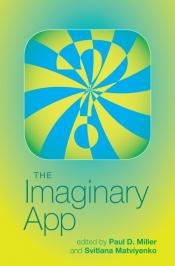
Mobile apps emerge as the central interface through which we engage with ubiquitous computing. Matviyenko and Miller ask: how does the app as a ‘technique’ channel our ways of maintaining relations within the media environment? This edited volume includes contributions from prominent software studies scholars such as Lev Manovich, Benjamin H. Bratton, Christian Ulrik Andersen, and more.
A good read about the data ecologies and political economies of software, as well as mediation and agency.
Imge Ozcan
NOVIĆ, SARA, GIRL AT WAR (NEW YORK: RANDOM HOUSE, 2015)

This book offers a very compelling description of how life is like in a city under siege, and how ‘ordinary’ people get dragged into wars or conflicts, even if they do everything to stay out of them. It also deals with migration, and the power of the international community, if they would only use it. Set in Croatia in 1991, the book also recounts a piece of recent European history, which shows that the importance of the peace project of the EU must not be underestimated or taken for granted.
As the novel comes with quite some surprising turns, it is best to not describe the plot in detail but just to plunge into it. The writing is perfect and it is a very quick read due to the incredible pace the story progresses in. It is a perfect companion for long train or plane rides.
Laura Drechsler
RAISS, JOCHEN,WOMEN IN TREES (BERLIN: HATJE CANTZ, 2016)
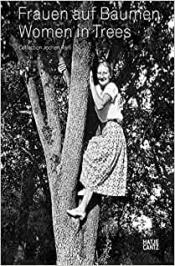
Before people started massively collecting data about anything and nothing in particular, there were already bizarre, niche-collectors collecting strange things for unclear reasons. Jochen Raiß collects pictures of women in trees, and this little book showing some of his finds is a pure joy: we see here many women in trees, indeed, and cannot avoid thinking about how watching many occurrences of the same inevitably impacts the perception of each of them – the sum being, in the end, always different from a mere addition of its parts.
Beyond this realisation, there is also something peculiarly mesmerizing about the artificial act of coming back to nature by climbing a tree in front of somebody’s mechanised eyes, a subtle tension between technology and the organic paralleled only by the friction between the presumed spontaneity of the gesture, on the one hand, and the long wait for the picture to be taken, on the other, as well as by the conflicting feelings perceptible here and there between the visible pride of having climbed relatively high, and the silent fear of falling. Wonderful.
Gloria González Fuster
RID, THOMAS, RISE OF THE MACHINES – THE LOST HISTORY OF CYBERNETICS (LONDON: SCRIBE, 2016)
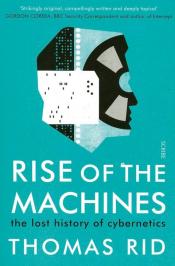
In his book, Rid explains the history of cybernetics – how it became the tool both for building a better world, and for controlling and potentially destroying it. He argues that “…machines were always a positive and a negative force at the same time, utopian and dystopian at once, although most of the time optimism dominated”.
Through the analysis of hitherto untold historical events of cybernetics the reader can learn the nuances of the relationship between humans and technology, and of the control theory of man and machine.
István Böröcz
RODOTÀ, STEFANO, DIRITTO D’AMORE (ROMA: LATERZA, 2016)
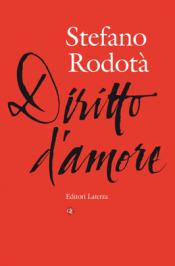
2017 began for me with this book in my handbag. I had been walking around Milan, found myself accidentally inside a very nice small bookstore, saw this, and could not leave without buying it. For me, Stefano Rodotà’s name stands for one of the brightest thinkers and defenders of the right to the protection of personal data, somebody who saw clearly the necessity of having such a right protected as a fundamental right in the European Union, and the momentousness of its recognition in the EU’s Charter of Fundamental Rights. He was also much more than that, for sure.
In May, I participated to a conference in Madrid during which Rodotà was supposed to deliver a keynote, but we were told that due to health issues he had not been able to travel – and had ‘just’ sent, instead, a rich and deep text on law, artificial intelligence, robotics, and many other things. In June, Twitter announced his death. Since then, I know I should be further (re-)reading him.
Gloria González Fuster
ROVELLI, CARLO, SEVEN BRIEF LESSONS ON PHYSICS (LONDON: PENGUIN, 2016)
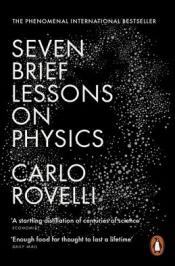
This book is a very short but enthusiastic fresco composed of seven scenes depicting Einstein’s general relativity theory, quantum mechanics, the universe’s macrocosmic structure, the Standard Model of elementary particles, loop quantum gravity, and Probability, Time, and the Heat of Black Holes. Unconvinced by the menu? It is understandable, but peel slowly and see. The general relativity is described as “sheer beauty”, cold-blooded quanta are “wonderful simplicity”, particles and black holes reflect the “mystery and beauty of the world”, questions about selfhood and nature are “breathtaking.” All of these in barely 100 pages double line including pictograms!
‘In Closing’, as the seventh scene, Rovelli engages directly with philosophical questions, such as the philosophy of science and knowledge, metaphysics and the free will debate, values and identity. He cites Lucretius, Spinoza, Kant, Heidegger; he does not propose answers but he makes his own point. Rovelli writes six ‘lessons’ that describe how nature-humanity, which for him is the same thing, becomes aware of itself. “We, ‘human beings’”, he writes on page 64, “are first and foremost the subjects who do the observing of this world; the collective makers of the photograph of reality which I have tried to compose”.
Eugenio Mantovani
ROY, ARUNDATI, THE MINISTRY OF UTMOST HAPPINESS (LONDON: HAMISH HAMILTON, 2017)
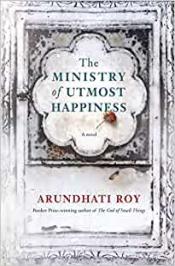
This new novel of the author of The God of small things is a magisterial kaleidoscopic dive into the steaming hot and complex worlds of India: a long range of strong characters and all kind of topics, mixed together with tons of humour and a sense for sympathy.
A page-turner, which leaves the reader with an India that is even more complex and surprising than s/he had learned to accept. Absolutely enthralling.
Serge Gutwirth
SANDEL, MICHAEL J., JUSTICE. WHAT IS THE RIGHT THING TO DO? (LONDON: PENGUIN, 2010)

At a certain point, I came to a realisation that law sometimes can reach its limits in solving research puzzles. Privacy and personal data protection law is no different here. Researchers then often turn to ‘something bigger’; something standing behind law, and capable of providing justification for legal choices. This ‘something bigger’ is often an ethical reflection, asking after right and wrong. But graduates of law schools are typically ill-equipped to reflect on ethics. Some help can come from Sandel and his famous course at Harvard University on Western moral philosophy (a.k.a. ethics), once even filmed and put on-line.
Sandel has based his book thereon and eventually wrote a page-turner. He is an erudite, navigating smoothly – and in plain English – not only amongst the thoughts of Bentham, Kant or Aristotle, to name a few, but also amongst many disturbing examples of choices that contemporary people are often forced to make. In the final parts, Sandel abandons the textbook narrative and takes a position on what constitutes the right thing to do.
Dariusz Kloza
SARAMAGO, JOSÉ, ALL THE NAMES (TRANSLATED BY MARGARET JULL COSTA; LONDON: THE HARVILL PRESS, 2000)
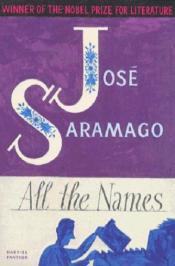
Already the opening paragraph is intriguing for a person who, on a daily basis, is occupied with (personal) data and their protection: “…not a day passes without new pieces of paper entering the Registry…”. The main protagonist works for the said “Central Registry of Births, Marriages and Deaths”. During the office hours, he is a meticulous desk clerk, yet off the clock he maintains his own parallel registry, obviously illicit, satisfying his interest in famous people. One day he comes across a dossier of an ordinary woman and becomes obsessed with her life.
All the names is a parable about many things: the importance of one’s identity, the quest for the sake of the quest, about submission, disobedience or the exploitation of a state apparatus for private purposes, regardless if licit or not. (The last reminds me of the 2006 Andrea Arnold’s film Red Road). In parallel, Saramago depicts – with his long, almost unpunctuated sentences – a universe of Kafkaesque bureaucracy: sublime, monumental and hierarchical. His novel is also a handy reminder that (personal) data can equally be handled on paper, in an old school way.
Dariusz Kloza
SENECA, MORAL LETTERS TO LUCILIUS BY THE ROMAN STOIC PHILOSOPHER SENECA (IN LITHUANIAN: LUCIJUS ANĖJUS SENEKA, LAIŠKAI LIUCILIJUI; VILNIUS: TYTO ALBA, 2009)
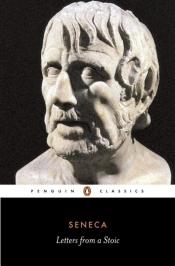
The staggering sagacity of Moral Letters to Lucilius made me wonder if we are really challenged in ways that would have been incomprehensible to humans who wandered around centuries ago. We hear often that we are faced with new and unique challenges in today’s world where self-driving cars are no longer science fiction and where many of us are presented with ads that reach our deepest insecurities. But are we? Are our concerns greatly different from the ones of individuals who lived years before Christ? Can it be we are deceived by a cliché of ‘unique challenges’ that surfaces in and drives many debates concerning contemporary society and technology regulation?
While I think that not all stoic ideas can be taken on board (e.g. stick to a few books), there are many that could certainly enhance our farsightedness and mindfulness. For example, consider the observation shared in Letter 29: “For who that is pleased by virtue can please the crowd? It takes trickery to win popular approval; and you must make yourself like unto them; they will withhold their approval if they do not recognize you as one of themselves”. I read this book in Lithuanian, the quote is taken from Wikisource.
Lina Jasmontaite
SUAREZ, DANIEL, CHANGE AGENT (BOSTON: DUTTON, 2017)

This is a great read if you are not a very critical reader, and forget that his earlier books were better. The story plays with the implications of the possibility of genetic transformations.
Joris van Hoboken
SZYMBORSKA, WISŁAWA, WYSTARCZY [ENOUGH] (KRAKÓW: A5, 2012)

Szymborska is one of my favourite poets. I have read all her books of poems since I discovered her, still in school, and my fascination with her writings has only grown from the moment she was awarded the 1996 Nobel Prize in Literature. Her poems – short, simple yet profound – are apt observations about the humans, their nature and the reality surrounding them. Szymborska always forces to reflect. In her last, posthumous poetry collection, Wystarczy [Enough] (2012), there is the poem Wyznania maszyny czytającej [Confessions of a reading machine].
In a post-humankind reality, this reading machine admits it cannot (yet) understand abstract words – such as ‘dusza’ [a soul] and ‘jestem‘ [I am] – and considers whether to ask a fellow machine for help as the latter is “admittedly a well-known madman / but has ideas” (translation mine). Poetry about machines is nothing new; poems about algorithms – this is rather new. (This poem came to my mind when I was recently asked if I knew anything about ‘algorithmic governmentality’).
Dariusz Kloza
VESTING, THOMAS, DIE MEDIEN DES RECHTS: SPRACHE, SCHRIFT, BUCHDRUCK, COMPUTERNETZWERKE (WEILERSWIST-METTERNICH: VELBRÜCK: 2011, 2011, 2013, 2015)

I knew, when I wrote A vision of ambient law, that I should have buried myself in a cave somewhere to write an extensive history of the technological embodiment of law. Instead, I restricted myself to a philosophical analysis of the affordances of speech, script and the printing press for the law. This year I found out that Thomas Vesting actually wrote that history, based on the perspective of media studies, one volume per technology (including also networked computers). So, I bought all the volumes and immersed myself.
He actually stopped where my own book on Smart technologies and the end(s) of law starts, thus kindly leaving room for me to investigate the rise of artificial, data-driven agency. His work will be published in English in 2018 – I hope this will trigger awareness amongst lawyers that the mode of existence of law-as-we-know-it cannot be taken for granted and is to some extent contingent upon its alignment with the information and communication infrastructure of printed text.
Mireille Hildebrandt
WALKER, ALICE, THE COLOR PURPLE (SAN DIEGO: HARCOURT, 1982)
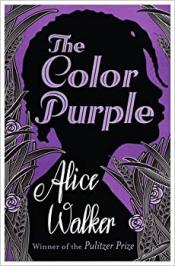
This book is so beautiful, it is very hard to do it justice by describing it. The story of a young girl in the deep South told in her own words has a power to it that makes it impossible to stop reading and it will be over way too soon (leaving behind a feeling of having lost a good friend you have known for many years). While in the beginning the young narrator struggles to find the right expressions and the writing purposely feels forced and unnatural (stick with it!), the story becomes richer as the narrator gains experience and finds her voice.
It is rare to find a book that illustrate so beautifully by using language how resilient humans can be and how much strength can be found in the most unexpected places. It also shows the importance of freedom in all its various expressions for personal development. In the end, this book is terribly sad, deep, uplifting, and plain inspiring – read it if you have not done so yet!
Laura Drechsler
ZEH, JULI, THE METHOD (TRANSLATED FROM THE GERMAN BY SALLY-ANN SPENCER; LONDON: VINTAGE BOOKS, 2014; ORIGINALLY CORPUS DELICTI: EIN PROZESS, FRANKFURT/MAIN: SCHÖFFLING, 2009)
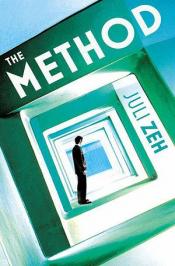
With all my déformation professionnelle, I frequently catch myself looking for those authors and writings (or for directors and movies, etc.) that would depict the shape of things to come and the need to face those things when they go wrong – parables, dystopias, science fiction, etc. I still remember the powerful effect that Camus and his La Peste (1947) left when I was still a high school boy. Last year I read e.g. Eggers’ The Circle (2013) and I mentioned it on the previous edition of this list; lately I have seen its film adaptation. (Yet here I am not going to comment thereon).
This year, in a different context, I unintentionally run into Jan Philipp Albrecht’s political manifesto Hands off our data! (2015) and I was really curious what he had written there. (Again, no comment on that). In his book, he illustrated surveillance with – obviously – Orwell’s Nineteen Eighty-Four (1948) and – less obviously – with a German contemporary author Juli Zeh and her novel The Method (2014). I could not resist but to read the latter too.
In Zeh’s book, a society of the future runs on the perfect human health. It is a legal duty to be healthy, and a crime not to be so. (The author has read law at university). People greet each other by “Santé, one and all!” and some are tried for “excessive blood caffeine levels” or for a failure to provide medical data to the state, which controls whether they maintain their well-being properly. No matter how attractive the perfect human health is, there are, of course, rebels against the regime and the book is their story. It is easy to take the side of the resistance, but the counter-arguments can sometimes be convincing too. (Her book is rather short and, in that sense, it left me dissatisfied. I would have liked to know more about Zeh’s idea and reasoning). Eventually, this book is a reminder that an ideology behind a totalitarian political system could be as noble and appealing as the perfect human health. All the rest remains totalitarian.
Dariusz Kloza
Editors
LSTS books of the year 2017 was edited by Dariusz Kloza and Gloria González Fuster.
Note by the editors: Accompanying pictures are included for illustration purposes, and might or might not correspond to the cover of the edition the reviewer actually read.
